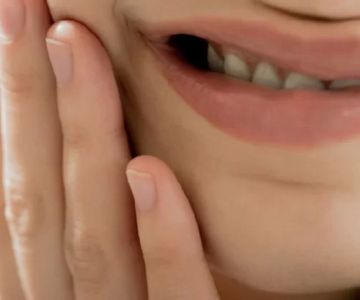Does Oral Sex Cause Gum Disease? Understanding the Risks and Prevention
When it comes to maintaining good oral health, most people focus on brushing, flossing, and avoiding sugary foods. But what about the impact of intimate activities like oral sex? There’s been some debate and concern surrounding the possible link between oral sex and gum disease. As someone who has researched various aspects of dental health, I’ve realized that while oral sex itself may not directly cause gum disease, it can increase your risk of developing it if certain factors are involved. In this article, we’ll explore whether oral sex can cause gum disease, the risks involved, and how you can protect your oral health.
Oral health is a vital aspect of overall health, and understanding how different behaviors affect it can help you make informed decisions. I’ve had many friends ask me if oral sex can lead to gum disease, and it’s a question that’s often shrouded in uncertainty. Let’s clear up the myths and facts surrounding oral sex and its potential impact on gum health.
1. What Is Gum Disease?
Gum disease, also known as periodontal disease, is an infection of the gums caused by the buildup of plaque and bacteria. It begins with gingivitis, a mild form of gum disease, which causes redness, swelling, and bleeding of the gums. If left untreated, gingivitis can progress to more severe stages, including periodontitis, which can lead to tooth loss and other serious health complications.
To avoid gum disease, regular oral hygiene practices like brushing, flossing, and visiting the dentist are essential. However, factors like smoking, poor nutrition, and certain medical conditions can increase the risk of developing gum disease. In recent years, researchers have also examined how oral sex and sexually transmitted infections (STIs) may affect gum health. Let’s take a closer look at this relationship.
2. Can Oral Sex Cause Gum Disease?
The short answer is that oral sex doesn’t directly cause gum disease. However, oral sex can introduce bacteria and viruses into the mouth, which may contribute to the development of gum disease or other oral health issues if proper care is not taken. This is especially true when it comes to sexually transmitted infections (STIs), such as herpes, gonorrhea, and human papillomavirus (HPV), which can infect the mouth and throat.
When I first heard about the link between oral sex and gum disease, I was surprised. After all, oral sex itself doesn’t seem to be an obvious risk factor for gum disease. But then I started learning more about how certain STIs can affect the gums, and it made sense. Certain infections can weaken the gums, making them more susceptible to inflammation and infection. This can increase the risk of developing gingivitis and periodontitis.
2.1. STIs and Their Impact on Oral Health
One of the most significant concerns when it comes to oral sex and gum disease is the potential transmission of STIs. For example, herpes simplex virus (HSV) can cause sores and blisters in the mouth, leading to painful lesions that can further irritate the gums. Similarly, the human papillomavirus (HPV) has been linked to certain oral cancers and can affect the mouth and throat, including the gums. While these infections themselves might not directly cause gum disease, they can weaken the immune system and make the gums more prone to infection.
One particular case that stands out to me is when a friend shared her experience with oral herpes. She had an outbreak of cold sores in her mouth, which led to painful and swollen gums. The inflammation from the sores made her gums more sensitive and more likely to bleed, increasing her risk of gum disease. It was a painful reminder of how infections in the mouth can complicate gum health.
2.2. The Role of Bacteria in the Mouth
Even if you’re not dealing with an STI, oral sex can still contribute to gum disease by introducing bacteria into the mouth. During oral sex, bacteria from the genital area can transfer to the mouth, where they can lead to plaque buildup on the teeth and gums. Plaque, as I’ve learned over the years, is a sticky film of bacteria that forms on teeth and gums. If not removed regularly, plaque hardens into tartar, which can only be removed by a dentist or hygienist. The bacteria in plaque can cause gum inflammation, which may eventually lead to gum disease if left untreated.
In my own experience, I’ve noticed that maintaining good oral hygiene—especially after engaging in oral sex—can significantly reduce the risk of bacterial buildup in the mouth. Brushing, flossing, and rinsing with mouthwash can help remove any lingering bacteria and keep your gums healthy.
3. How to Protect Your Gums and Maintain Oral Health
Now that we’ve covered the potential risks, let’s talk about how to maintain optimal oral health and protect your gums. There are several steps you can take to minimize the risk of developing gum disease, especially if you’re concerned about the impact of oral sex on your gum health.
3.1. Practice Good Oral Hygiene
The most important step in preventing gum disease is practicing good oral hygiene. Brushing your teeth at least twice a day with fluoride toothpaste, flossing daily, and using mouthwash can help remove plaque and bacteria from your teeth and gums. After oral sex, I recommend brushing your teeth and rinsing your mouth with an antibacterial mouthwash to remove any bacteria that may have been transferred during the act.
Additionally, using a soft-bristled toothbrush can help prevent gum irritation and damage. Be sure to brush gently along the gumline to remove any plaque buildup and avoid hurting your gums.
3.2. Get Regular Dental Checkups
Regular dental visits are essential for maintaining healthy gums and teeth. During checkups, your dentist can identify any early signs of gum disease, such as gingivitis, and provide treatment before it progresses to more severe stages. I always schedule a dental cleaning every six months to ensure that my gums stay healthy and that I’m not at risk of developing gum disease. Your dentist can also offer advice on how to improve your oral hygiene routine and provide professional cleanings to remove tartar buildup.
3.3. Use Protection During Oral Sex
If you’re concerned about the potential risks of oral sex and its impact on your oral health, using protection is a good way to minimize the transmission of STIs and bacteria. Dental dams, for example, can be used during oral sex to create a barrier between the mouth and genital area, reducing the likelihood of transferring harmful bacteria or infections.
3.4. Stay Hydrated
Keeping your mouth moist by drinking plenty of water can help prevent dry mouth, which is a risk factor for gum disease. When your mouth is dry, the natural defenses against bacteria are weakened. I’ve found that staying hydrated not only keeps my mouth fresh but also promotes saliva production, which helps wash away food particles and bacteria.
4. A Personal Story: The Impact of Oral Hygiene on My Health
I used to be somewhat lax about my oral hygiene, thinking that brushing twice a day was enough. However, after dealing with recurring gum inflammation and sensitivity, I realized I needed to step up my game. It wasn’t until I started paying closer attention to the health of my gums and practicing better hygiene that I saw a significant improvement. A friend’s experience with an oral infection after oral sex also served as a reminder of how easily bacteria can affect our health, and I now take precautions to protect both my oral and overall health.
If you’re worried about your oral health or need more advice, I highly recommend checking out Dentistry Toothtruth for expert tips on maintaining healthy teeth and gums.



 Westgate Dental Arts3.0 (2 review)
Westgate Dental Arts3.0 (2 review) Coventry Family Dental4.0 (247 review)
Coventry Family Dental4.0 (247 review) Familia Dental3.0 (1028 review)
Familia Dental3.0 (1028 review) Dr. Daniel S. Fife, DDS4.0 (31 review)
Dr. Daniel S. Fife, DDS4.0 (31 review) Dentistry At Suburban Square: Michael I. Wollock, DMD4.0 (1228 review)
Dentistry At Suburban Square: Michael I. Wollock, DMD4.0 (1228 review) Comfort Care Dental4.0 (1156 review)
Comfort Care Dental4.0 (1156 review) The Importance of Oral Health Education During Pregnancy for a Healthy Pregnancy
The Importance of Oral Health Education During Pregnancy for a Healthy Pregnancy Why Skipping Dental Checkups Can Lead to Bigger Oral Health Problems
Why Skipping Dental Checkups Can Lead to Bigger Oral Health Problems Best Tips for Brushing Your Teeth Properly for Healthy Gums: Essential Techniques for Oral Health
Best Tips for Brushing Your Teeth Properly for Healthy Gums: Essential Techniques for Oral Health Advantages of Porcelain Dental Restorations
Advantages of Porcelain Dental Restorations How Can Diabetes Cause Tooth and Gum Problems? Preventing and Managing Oral Health Issues
How Can Diabetes Cause Tooth and Gum Problems? Preventing and Managing Oral Health Issues Healthy Habits for Promoting Good Oral Health and Hygiene: Tips for a Healthy Smile
Healthy Habits for Promoting Good Oral Health and Hygiene: Tips for a Healthy Smile